'He told me he'd been shot and needed money but it was a lie'
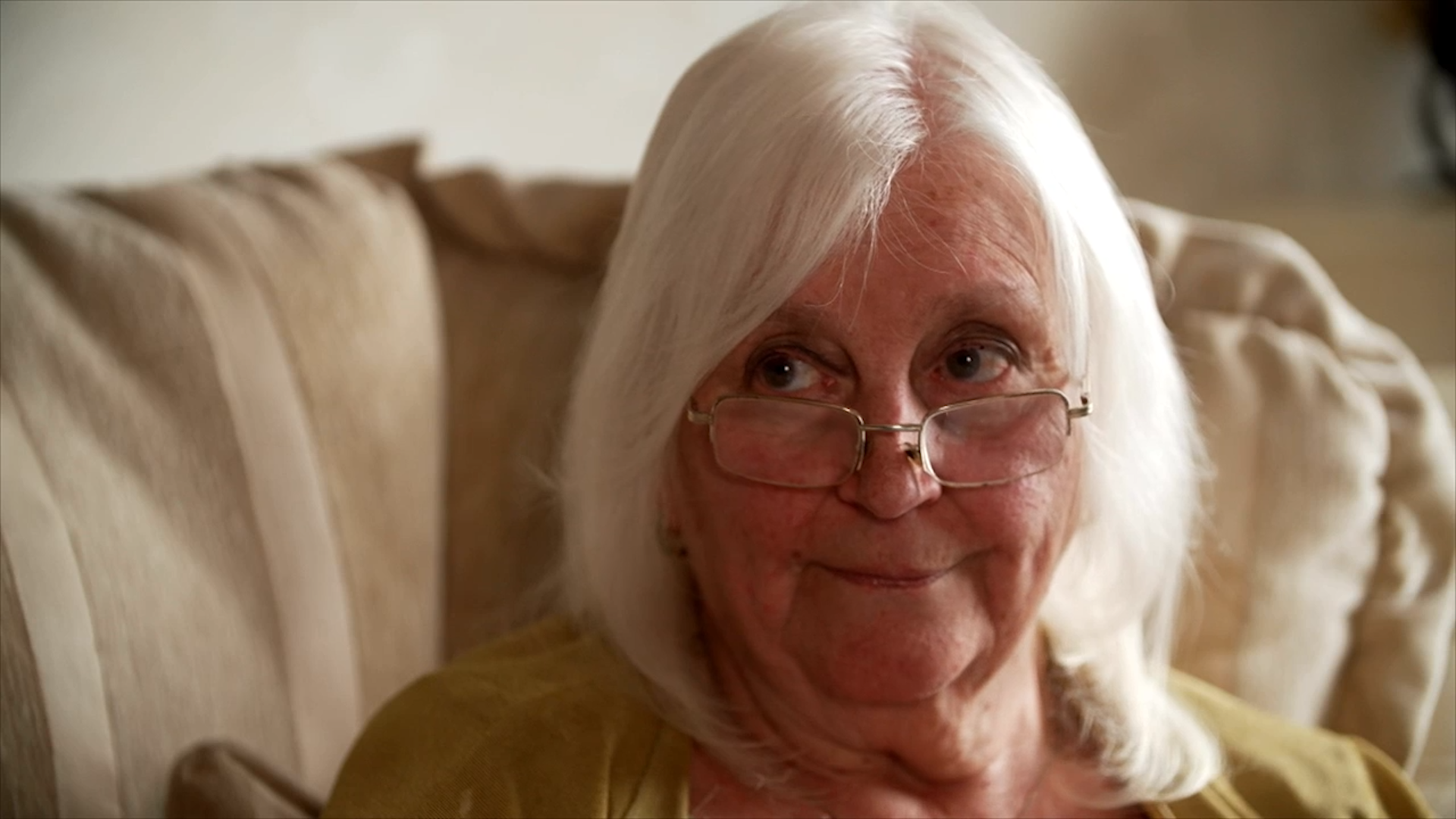
A scammer pretended to be a 71-year-old widower to trick Sue
- Published
A 72-year-old woman was targeted by a romance scammer who attempted to trick her into sending them money.
Sue, from Staffordshire, who asked not to use her full name, was duped by a man posing as a widower shortly after she lost her own husband of 40 years.
Her case is a typical example of a dating scam, one of the fraud categories behind an 11% rise in reports to Action Fraud.
That is according to a BBC Freedom of Information request sent as part of Scam Safe, a week of programming spotlighting how people can protect themselves against scams.
Sue was targeted when she joined an online dating group a few years after her husband, Don, died, which she said "devastated" her.
"Don was the best thing that ever happened to me," she said.
Shortly after joining the group, Sue started receiving messages from someone claiming to be called John.
John told Sue he had been a widower for six years and was currently in Dubai.
"He said that he was a civil engineer and he was 71," Sue said.
"He looked quite decent."
A couple of days after he started messaging her, Sue said John told her he loved her.
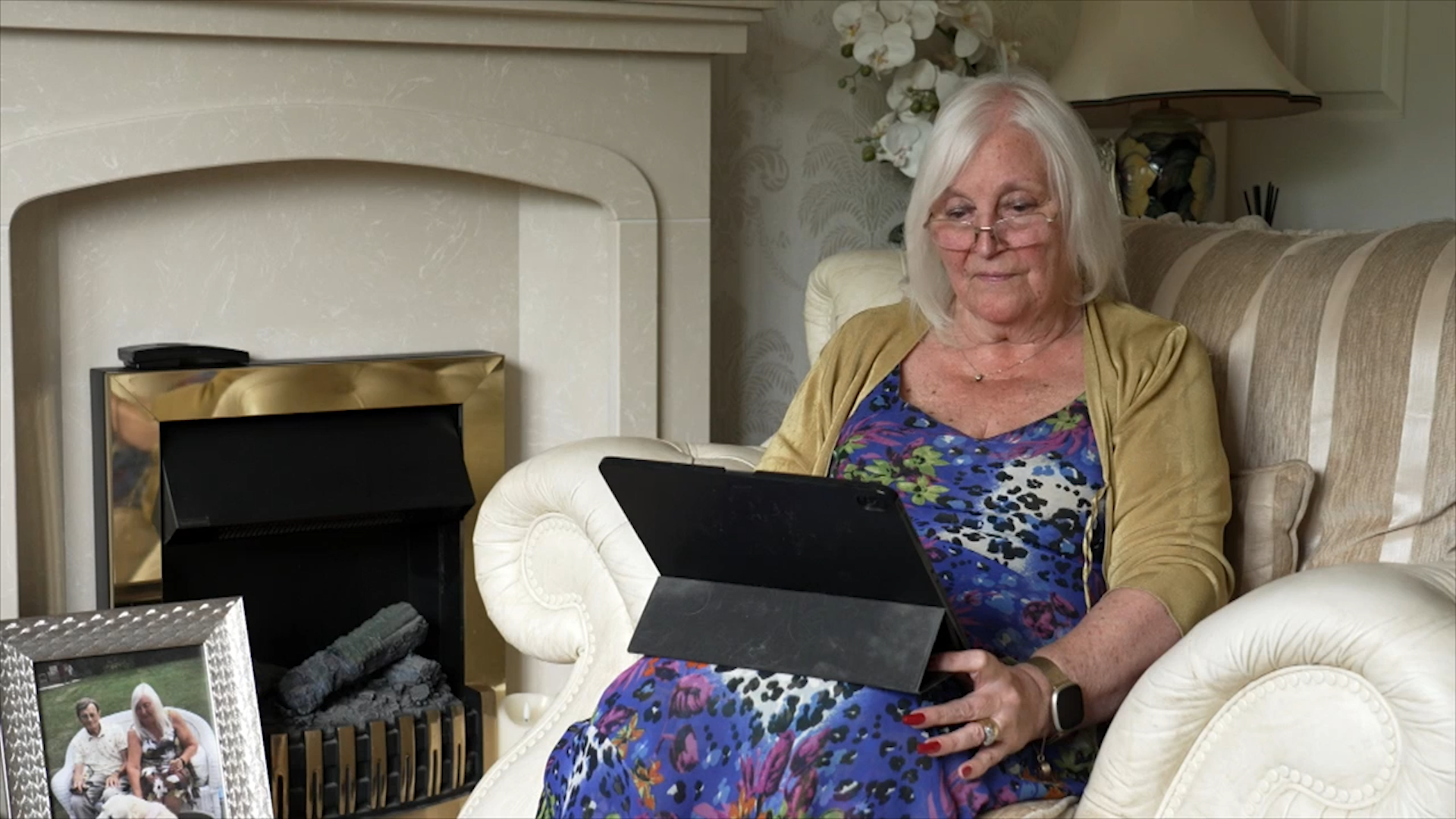
The scammer told Sue that he loved her and then claimed to have been mugged
If you have been affected by fraud, support can be accessed through the BBC's Action Line.
She now suspects she was being targeted in a dating scam, a category of fraud that has seen one of the largest increases in reports since 2019.
The category covers cases where the intended victim is befriended online and emotionally manipulated into sending money to someone they believe they are in a relationship with.
In the first six months of 2024, Action Fraud received reports of 4,109 cases of dating scam fraud, up 56% for the same six months in 2019.
Police advise anyone who has been a victim of a scam to report it as soon as possible, both to Action Fraud and their bank.
Befriending for money
Sue said that in the first week, John "used to message me every day".
"The second week, it went quiet for two days and then he popped back up and said that he'd been mugged and he'd been shot in the leg. He’d been taken to hospital."
Sue checked the name of the hospital online, which did exist.
"He contacted me from his hospital bed and said that he hadn't eaten for two days," she said.
"He said, could I send him £100 in gift cards so that he could get something to eat."
She told him she was not prepared to send him any money.
"He then also said he couldn’t pay his hospital bills and I just said I’m sorry I can’t."
Suspecting something was wrong, she contacted BBC Morning Live.
Det Insp Kerry Skingle, from Staffordshire Police, warned that fraudsters commonly seek out vulnerable people online with the intention of befriending them for money.
"They go to great lengths to gain their trust and convince them that they are in a genuine relationship, with the ultimate aim of defrauding them out of their hard-earned money," she said.
A rise in reports
A joint investigation by the BBC's Morning Live and England Data Unit has found, through Freedom of Information requests to the City of London police, that Action Fraud received 190,030 reports of fraud in the first six months of 2024.
That is up 11% from the same period in 2023, a rise primarily driven by an increase in reports of hacking, dating scams and online shopping and auction fraud.
Action Fraud is the national fraud and cyber crime reporting centre for England and Wales. Other agencies, such as Police Scotland, do not have a formal relationship with Action Fraud but do report some cases.
Action Fraud relies on victims self-reporting, so actual cases of fraud may be higher.
Hacking through social media and email was the category that saw the largest rise in the first six months of the year - with 16,367, up 89% from the same period on 2023.
'I clicked on something that looked normal'
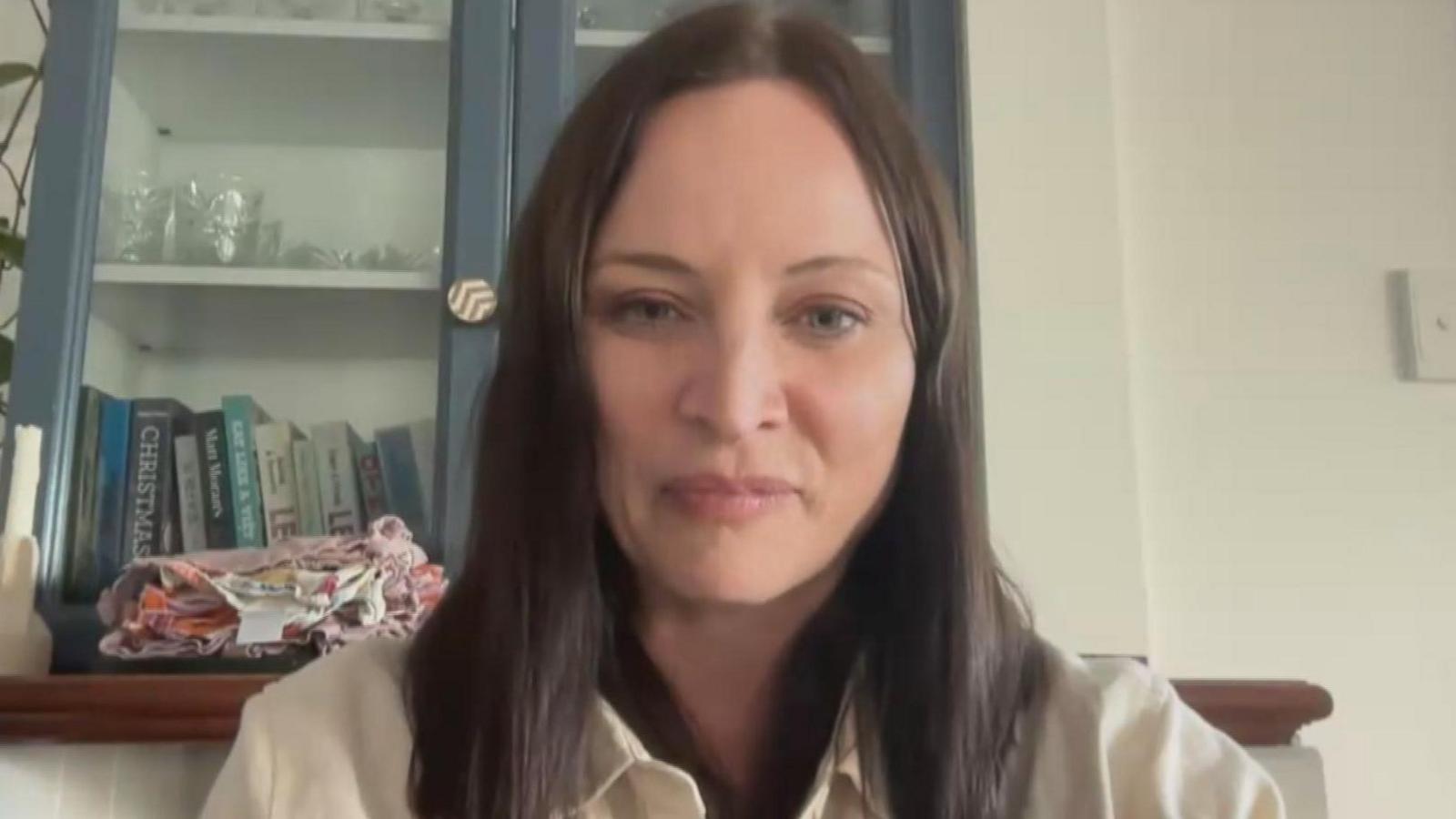
With hindsight, Alex says the box she clicked on "looked a bit makeshift"
It was hacking which saw 46-year-old Alex Carlton scammed when she came home from holiday.
While travelling, she "clicked on something that looked very much like the normal Sydney Airport wi-fi".
It asked her where she was going. After typing in London, she got on with a few tasks - including "a bit of online banking".
When she arrived in London, she saw she had been charged by "a restaurant in Sydney that I have never been to".
"I was charged while I was flying somewhere over Turkey."
She did not report the incident to the police as her bank quickly froze her card. But she is now more vigilant about what wi-fi she uses.
“They do look very, very similar to the real one," she said.
"It can be very difficult sometimes to tell."
According to Action Fraud, £1.4m was lost last year through this type of fraud.
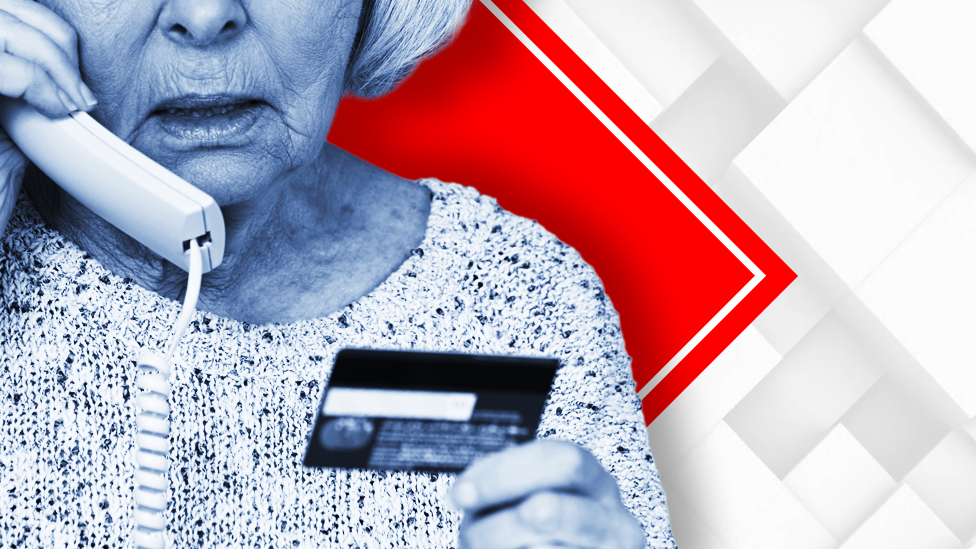
Top tips for scam safety
If it's out of the blue, check it is for you - Treat unexpected calls, texts and emails with caution. Always call back on a number you trust
Get a second opinion - Ask someone you trust what they think
Contact your bank - Dial 159 for your bank’s fraud department, or use the number on the back of your card
Share your story - Tell friends and family to keep them Scam Safe. Report suspicious texts to 7726 and emails to report@phishing.gov.uk
Det Insp Skingle advised that people should never give money or personal details, such as your address or banking details, to someone you have not met in person.
“I encourage anyone that has been a victim of a romance scam or fraud to report it as soon as possible, so the necessary action can be taken,” she said
Action Fraud also advised that people can protect themselves against hacking by setting up two-step verification and using strong and different passwords for their social media and email accounts.
More advice on how to protect yourself against fraud can be found in the BBC's Scam Safe week resources.
Additional reporting by George Sandeman and Grace Dean
Related topics
- Published24 November 2024
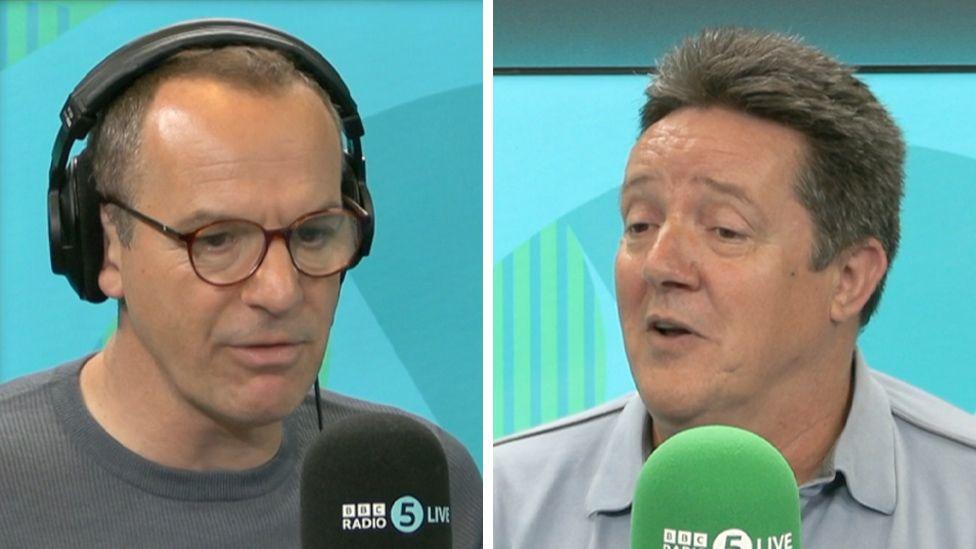
- Published22 October 2024
